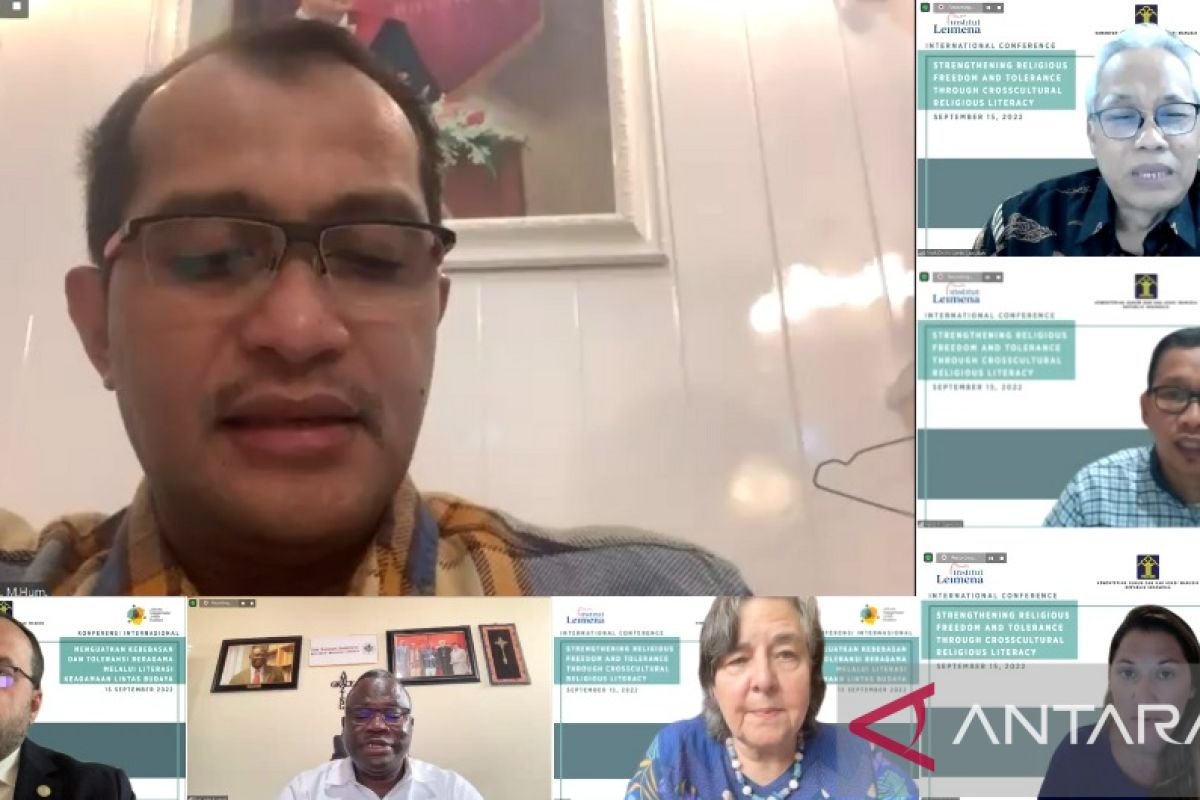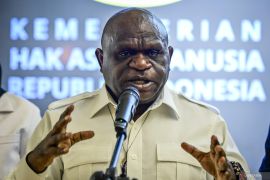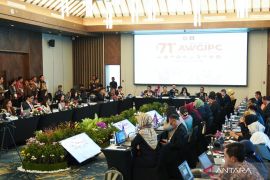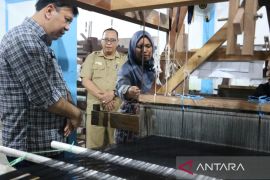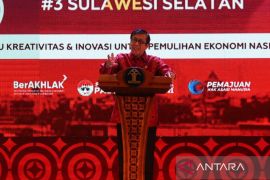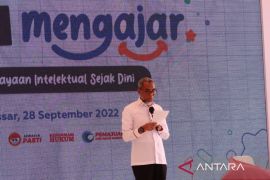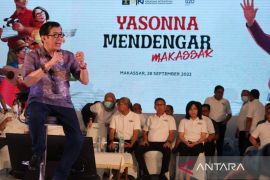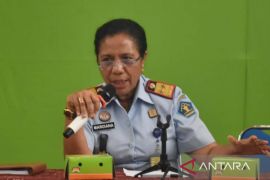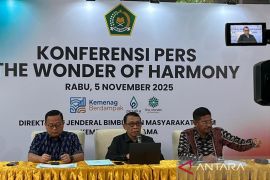Listen and observe with your heart, verify with your mind, and engage with your handsJakarta (ANTARA) - The Law and Human Rights Ministry deems the concept of cross-cultural religious literacy as fitting for Indonesia having diverse demographics.
"Cross-cultural religious literacy neither rejects nor fuse differences into uniformity. On the contrary, (it) manages differences through evaluation, communication, and negotiation processes to respond to shared opportunities and challenges on local and global contexts," Deputy Minister of Law and Human Rights Edward Omar Sharif Hiariej noted in a written statement here on Friday.
Hiariej expounded that literacy in that context was not gauged from one's expertise or comprehension but rather was more about sensitivity in which a human being had the humility to listen, observe, verify, and engage.
The concept was not to mix faiths and it did not promote secularism either, according to Hiariej. Cross-cultural religious literacy was multidisciplinary, interdisciplinary, and transdisciplinary in nature.
Related news: G20 DMM success bringing international attention to Belitung Island
"Listen and observe with your heart, verify with your mind, and engage with your hands," he stressed.
According to Hiariej, the concept encouraged all religious communities to have the ability to understand themselves and their own religion, recognize other faiths or people as they recognize themselves, and have the ability to cooperate with others.
He said religion could bring people together despite their differences. It was all about tolerance of religious teachings, so religious people must value plurality and be appreciative of diversity.
"Fellow religious people must know each other, not demean one another, avoid prejudice, not find fault with others, not mock each other, and live side by side," he stated.
Related news: G20 labor ministers formulate five key documents
Board of Director at the Agency for Pancasila Ideology Education (BPIP) Amin Abdullah remarked that pluralism in Indonesia was troubled due to arguments from ideological-conservative, textual-conservative, moderate, and liberal group of thoughts.
However, the hardest challenge actually came from its practice, which was in terms of the cultural and public awareness aspects.
Abdullah opined that the urgency to adopt the concept amid the people grew more, particularly through the education sector, amidst those cultural issues. Cross-cultural religious literacy was based on three aspects, comprising personal competence to understand one's own religion in relation to different people.
Moreover, comparative competence entailed understanding other religions in order to build tolerance and empathy, he affirmed. Lastly, collaborative competence pertained to working together to address various challenges in an increasingly complex world.
Related news: G20 IWG draws blueprints for Infratech financing, QII indicators
Related news: Global employment recovery attempts start in Bali at G20 LEMM
Translator: M Zulfikar, Mecca Yumna
Editor: Fardah Assegaf
Copyright © ANTARA 2022
